HAMPTON CITY SCHOOLS EVERY CHILD, EVERY DAY, WHATEVER IT TAKES!
CULTURALLY RESPONSIVE AND EQUITABLE PRACTICES


Philosophy
Hampton City Schools is committed to ensuring equitable access, opportunities, supports, and outcomes for all students and staff.
We will do this by:
remaining steadfast in our dedication to the core of our work, maximizing every child’s learning;
creating safe, nurturing environments led and sustained by exceptional and culturally competent staff;
eliminating disproportionality and achievement gaps in student performance through a comprehensive support system of care and a guaranteed and viable curriculum;
establishing high quality instructional learning opportunities and resources inclusive of culturally responsive practices that reflect, validate, and affirm the diverse community in which we serve;
recognizing that students differ in their rate and manner of cognitive development; and making provisions for individual differences in learning rate, interests, and styles.
providing opportunities for student expression that take into account the many modes for expression of intelligence, divergence of thinking, and differences of opinion;
providing students with the opportunities and resources needed to develop positive and realistic concepts of themselves and others through curricular, co-curricular, and extracurricular activities as well as develop acceptable standards of behavior within the school setting and those that allow them to participate in society as responsible citizens; and,
ensuring equity of opportunity and equity of access to programs, professional development, and services by managing fiscal resources effectively and efficiently.
Hampton City Schools Policy AD - PHILOSOPHY OF THE HAMPTON CITY SCHOOL DIVISION (Revised September 1, 2021)

Purpose
Advancing the division’s commitment to equity by using the lens of equity to focus, prioritize and manage the dynamic scope of culturally responsive leadership, culturally responsive teaching, and culturally responsive curriculum into the framework of the organizational structure of Hampton City Schools.
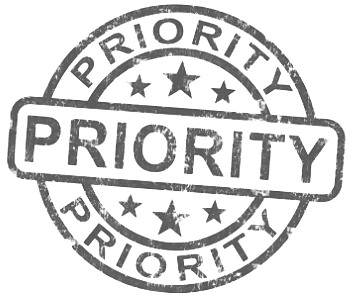
Priorities
The Division Equity Leader engages in and provides the following support services:
Develops common language and definitions related to equity aligned with research and grounded state and national guidelines
Provides guidance on current state and federal policies and procedures related to equity across all levels of the organization
Creates interactive, individualized, and meaningful professional learning related to culturally responsive and inclusive education practices
Engages in data discussions with school leadership teams
Ensures that culturally responsive and inclusive practices are embedded in the guaranteed and viable curriculum
Develops strategies to ensure a diverse and inclusive workforce
Develops strategies that complement and support social-emotional learning
Develops and enhances strategies to address inequities in student access to learning across all levels of the organization
Responds to issues and inquiries from school division administrators, parents, and educators regarding educational equity for the purpose of identifying the relevant issues and recommending or implementing a plan of action that will efficiently resolve the issue
Researches current policies and procedures for the purpose of ensuring the division’s compliance with relevant requirements aligned with state and federal guidelines.
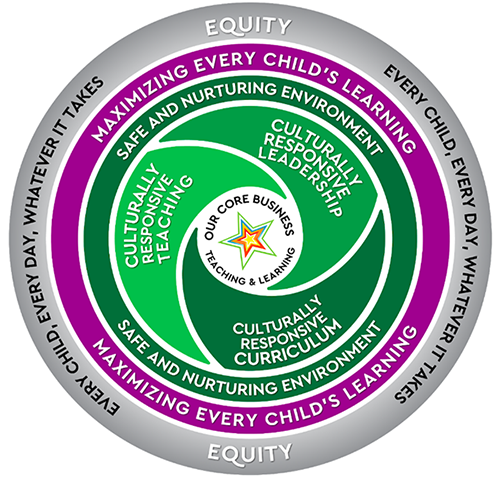
Equity Model
Our core business of teaching and learning is supported by three distinct areas of culturally responsive teaching, curriculum, and leadership. A safe and nurturing environment leveraged by social-emotional learning allows us to maximize every child’s learning as we operate our collective work through the equity lens.
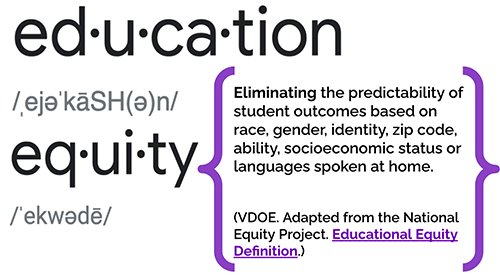
Education Equity
Our division understands and recognizes that equity is not the same as equality. Equality connotes the idea that resources, supports, services, and opportunities are distributed evenly, regardless of individual needs. We understand and recognize that education equity means each student receives what they need to develop and to cultivate their fullest potential - academically, socially, and emotionally. (VDOE EdEquity VA; National Academies of Sciences, Engineering, and Medicine)
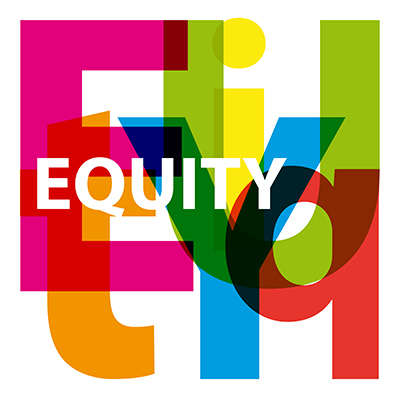
Community Promise
Our community promise and the collective outcome is the Portrait of a Hampton Graduate, From setting the foundation for learning PreK-5; navigating transition at the middle school level; and, discovering their futures, through their journeys in over 44 pathways in our Academies of Hampton - none are excluded from this work.
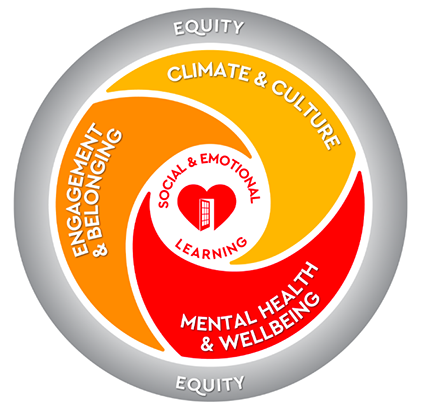

Social Emotional Learning
Rather than being pursued as separate bodies of work, it is to be understood that social-emotional learning and equity in education are mutually reinforcing. By establishing SEL as a lever for equity, we can further promote and create safe and nurturing environments that enable all of our students to maximize their learning (Regional Education Laboratory). Our division will be intentional in the connectivity between SEL and equity - integrating communication, expectations, and professional learning in alignment with The Collaborative for Academic, Social, and Emotional Learning (CASEL) 5 Competencies and Equity Elaborations (CASEL: Equity & Social and Emotional Learning: A Cultural Analysis, p. 8)
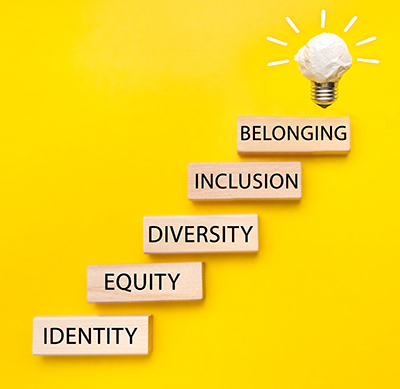 Equity Plan
Equity Plan
The school division will develop, communicate, and implement a division-wide equity plan that outlines active measures in place to address education equity in Hampton City Schools per the Strategic Plan goals, measures, and key initiatives. The division-wide equity plan will be reviewed annually and disaggregated performance metrics will be used to measure progress toward the division’s goals and key initiatives with outcomes being reported as collaboratively designated and determined by the division leadership team, Superintendent, and School Board.
2021-2022 Focus: Develop and provide ongoing and meaningful professional development and support to division-level and school-level leadership related to culturally responsive and inclusive education practices.
Understanding by Design Professional Learning Modules to include an intentional connection between social emotional learning and curriculum, instruction, and assessment.
Curriculum Audit to determine areas of opportunity to tighten best practices and ensure curriculum and instructional resources are created, designed, and enhanced that are diverse, inclusive, and culturally responsive.
Ensure a guaranteed and viable curriculum that embeds culturally responsive techniques and strategies that our instructional staff can implement with confidence and fidelity beginning the 22/23sy based upon the findings of the Curriculum Audit.
Equity Collaborative Learning Team (CLT) to design signature practices around creating safe and supportive learning environments through culturally responsive and practices; social emotional learning; trauma-informed practices; and, social justice practices to ensure equity throughout our division.

The following legislation, Virginia Department of Education guidance, and Hampton City Schools policies ground the development of the division’s equity philosophy, understandings, and commitments:
Hampton City Schools Policy AD - PHILOSOPHY OF THE HAMPTON CITY SCHOOL DIVISION
§ 22.1-298.7 Code of Virginia
§ 2.2-1211 Code of Virginia

All the resources published on this page, or in any article herein is for information only. Information on this site is not an endorsement by Hampton City Schools and/or the Department of Student Support Services. Views expressed in any article or form of media are the views of the authors, presenters, or facilitators individually and do not necessarily reflect the views of Hampton City Schools and/or the Department of Student Support Services. Some of the links on the pages may lead you to websites not associated with Hampton City Schools. Our division does not necessarily endorse the views expressed or the data and facts presented on these external sites. In addition, our division does not endorse or recommend any commercial products, processes, or services. The resources provided encompass a range from our youngest learners through high school. This is not an exhaustive list.

Inclusive environments and safe spaces are cultivated where all are treated equitably through access, opportunities, supports, and outcomes. Treating the diversity of young people as assets that add value to learning affirms the qualities that make them unique (EdEquityVA, 2021).
Websites:
Media, Podcasts, or TED Talks:
Book Lists:
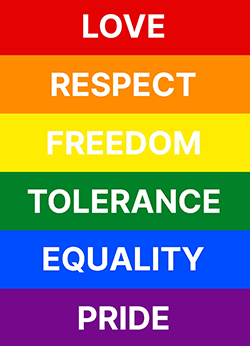
Regardless of gender identity, gender expression, or sexual orientation, every child has a right to learn free from discrimination and harassment. Safe, nurturing, and welcoming environments uphold student dignity and are a necessary part of an equitable education (EdEquityVA, 2021).
Websites:
Media, Podcasts, or TED Talks:
Book Lists:
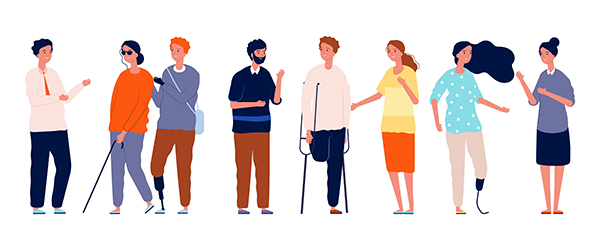
Teaching young people to share and accept the differences of others is a part of building an inclusive community. Doing so can protect students with disabilities from harm, bullying, and discrimination. Some differences may be invisible to young people; therefore, explaining developmental and learning disabilities can help children understand various types of abilities. When teaching young people about disabilities and special needs, as appropriate –
(Lightner, 2021 – A Day in Our Shoes)
Websites:
Disability Awareness and Virginia Department of Education Collaboratives:
Media, Podcasts, or TED Talks:
Book LIsts:

Empathy and kindness are needed daily when interacting with others. Without these two things, it can be difficult for young people and adults to maintain healthy relationships. The Collaborative for Academic, Social, and Emotional Learning (CASEL, 2021) states that through social-emotional learning, children learn to understand themselves, develop relationships, and strive for their goals. SEL includes five social and emotional skills that apply to all ages –

When and where young people are surrounded by trusted and caring adults and have the opportunities to engage in these skills they can achieve more, build confidence, handle stressful situations, and build stronger relationships.
Websites:
Harvard Graduate School of Education: Raising Caring, Respectful, and Courageous Children
Media, Podcasts, or TED Talks:
Book LIsts: